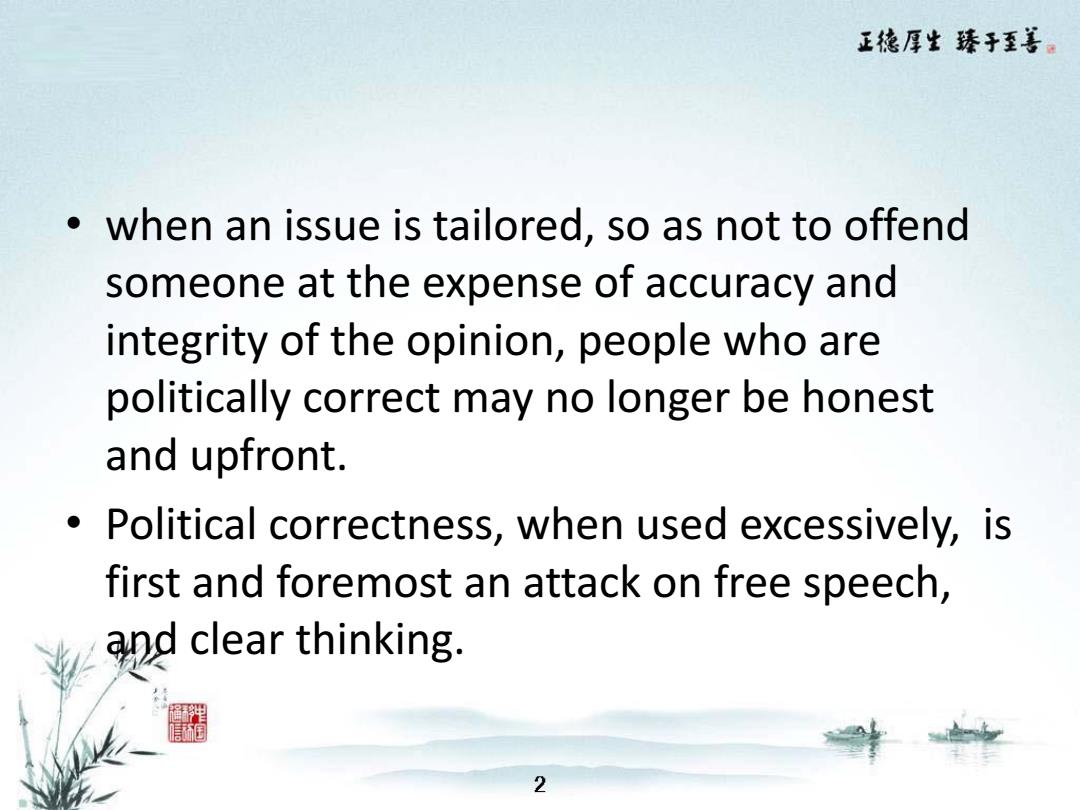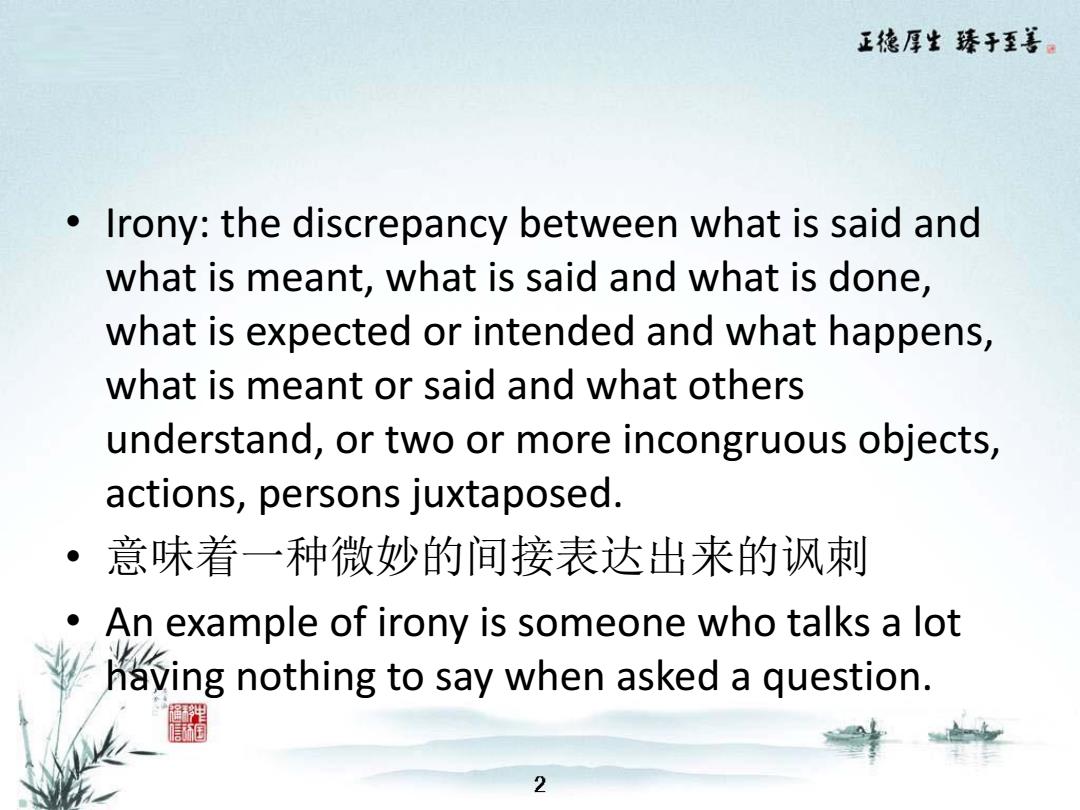
正德厚生臻于至善。 when an issue is tailored,so as not to offend someone at the expense of accuracy and integrity of the opinion,people who are politically correct may no longer be honest and upfront. Political correctness,when used excessively,is first and foremost an attack on free speech, d clear thinking. 2
• when an issue is tailored, so as not to offend someone at the expense of accuracy and integrity of the opinion, people who are politically correct may no longer be honest and upfront. • Political correctness, when used excessively, is first and foremost an attack on free speech, and clear thinking

正德厚生臻于至善。 It has been abused by various extremists. Freedom of speech,of the press,and even of thought are undermined. In current usage,the term is primarily pejorative. The converse term "politically incorrect"came into use as an implicit term of self-praise, indicating that the user was not afraid to ignore constraints associated with political correctness. 2
• It has been abused by various extremists. Freedom of speech, of the press, and even of thought are undermined. • In current usage, the term is primarily pejorative. • The converse term "politically incorrect" came into use as an implicit term of self-praise, indicating that the user was not afraid to ignore constraints associated with political correctness

正德厚生臻于至善。 Sarcastic---using words that are the opposite of what you mean in order to be unpleasant to sb.讽刺的、挖苦的;表示苟刻伤人的讽 刺和嘲笑 Sarcasm:a taunting,sneering,cutting,or caustic remark;gibe or jeer ● It is praise which is really an insult;sarcasm generally involves malice,the desire to put someone down,e.g.,"This is my brilliant son,who failed out of college." When giving feedback avoid sarcasm or highly negative remarks. Satire is the exposure of the vices or follies of an individual,a group, an institution,an idea,a society,etc.,usually with a view to correcting it..Satirists frequently use irony..含有暴露某种东西,尤 其是邪恶或愚蠢的讽刺之意 2
• Sarcastic---using words that are the opposite of what you mean in order to be unpleasant to sb.讽刺的、挖苦的;表示苟刻伤人的讽 刺和嘲笑 • Sarcasm: a taunting, sneering, cutting, or caustic remark; gibe or jeer • It is praise which is really an insult; sarcasm generally involves malice, the desire to put someone down, e.g., "This is my brilliant son, who failed out of college.“ • When giving feedback avoid sarcasm or highly negative remarks. • Satire is the exposure of the vices or follies of an individual, a group, an institution, an idea, a society, etc., usually with a view to correcting it. Satirists frequently use irony.含有暴露某种东西,尤 其是邪恶或愚蠢的讽刺之意

正德厚生臻于至善。 Satire is used to show foolishness or vice in humans,organizations,or even governments, by using sarcasm,ridicule,or irony. ·Jonathan Swift,“A Modest Proposal" 2
• Satire is used to show foolishness or vice in humans, organizations, or even governments, by using sarcasm, ridicule, or irony. • Jonathan Swift, “A Modest Proposal

正德厚生臻于至善。 Irony:the discrepancy between what is said and what is meant,what is said and what is done, what is expected or intended and what happens, what is meant or said and what others understand,or two or more incongruous objects, actions,persons juxtaposed. 意味着一种微妙的间接表达出来的讽刺 An example of irony is someone who talks a lot ing nothing to say when asked a question. 2
• Irony: the discrepancy between what is said and what is meant, what is said and what is done, what is expected or intended and what happens, what is meant or said and what others understand, or two or more incongruous objects, actions, persons juxtaposed. • 意味着一种微妙的间接表达出来的讽刺 • An example of irony is someone who talks a lot having nothing to say when asked a question